December 10, 2024
Employee retention is one of the most critical challenges faced by organisations today. High turnover rates can disrupt productivity, escalate recruitment costs, and impact morale within the workplace. In this evolving corporate landscape, wellness programmes have emerged as a strategic solution not just to enhance employee satisfaction but also to improve retention rates. By investing in employees’ mental, physical, and emotional well-being, companies can create a work environment that fosters loyalty and long-term engagement. Understanding the link between wellness and retention Employee wellness and retention are intrinsically connected. A study by the Chartered Institute of Personnel and Development (CIPD) found that organisations with comprehensive wellness initiatives report better employee morale, reduced absenteeism, and higher retention rates. When employees feel valued and supported, they are more likely to remain committed to their employer. Wellness programmes address multiple facets of employee well-being, including mental health support, fitness initiatives, nutrition guidance, stress management resources, and financial wellness. These holistic benefits demonstrate an employer’s commitment to their workforce, cultivating trust and a sense of belonging among employees. Key benefits of wellness programmes for organisations Improved job satisfaction Employees who participate in wellness programmes often report higher job satisfaction. Initiatives such as gym memberships, mindfulness sessions, or flexible work arrangements show that the organisation values their personal well-being. This contributes to a more positive work environment, which in turn increases employee loyalty. Reduction in absenteeism and presenteeism Wellness programmes play a vital role in reducing both absenteeism (employees not showing up for work) and presenteeism (employees coming to work but being unproductive due to stress or illness). Healthy employees are less likely to take frequent sick days and are more productive during work hours, resulting in better overall performance. Boosted employee engagement Employees who feel mentally and physically supported by their employer are more engaged with their roles. Wellness programmes create opportunities for team bonding through group activities such as fitness challenges or volunteering, which further enhance engagement and cohesion within the workforce. Strengthened employer branding A strong wellness culture can serve as a unique selling point for employers looking to attract top talent. In a competitive job market, employees increasingly prioritise workplaces that prioritise well-being. A robust wellness programme can enhance an organisation’s reputation as a great place to work, making it easier to retain existing staff and attract new hires. Wellness programmes in action: real-life examples Many leading companies have successfully implemented wellness programmes that have transformed their workplace cultures. For instance: Google provides employees with on-site wellness and fitness centres, healthy dining options, and mental health resources, all of which contribute to its reputation as a highly desirable employer. Unilever offers initiatives like flexible working hours, meditation classes, and support for mental health, resulting in higher engagement and lower attrition rates. John Lewis Partnership prioritises employee well-being through its financial wellness programmes and mental health support services, helping retain a dedicated workforce over the years. These examples demonstrate that organisations that actively invest in wellness enjoy long-term benefits in retention and employee satisfaction. How to design effective wellness programmes Creating a wellness programme that resonates with employees requires thoughtful planning and alignment with their needs. Here are key steps to design impactful initiatives: Conduct a needs assessment : Gather feedback from employees to identify the well-being areas they value most, such as fitness, stress management, or work-life balance. Customise offerings : One-size-fits-all programmes rarely work. Tailor initiatives to cater to diverse preferences, including flexible schedules, virtual wellness resources, and individual counselling. Measure outcomes : Regularly evaluate the effectiveness of wellness initiatives using metrics such as participation rates, employee satisfaction surveys, and retention statistics. Communicate effectively : Ensure that employees are aware of wellness programmes and understand how to access them. Highlight the benefits to encourage participation. Wellness as a strategic investment For employers, wellness programmes are not merely perks but strategic investments in their workforce. By addressing the needs of employees and fostering a culture of well-being, organisations can create a ripple effect of benefits, from improved retention to enhanced productivity. Moreover, with the rising importance of work-life balance and mental health awareness, these programmes will remain critical in shaping the future of work. A win-win approach The integration of wellness programmes into organisational strategies is not just about retaining employees but also about creating a thriving workplace where both employees and businesses flourish. In a time when retaining talent is more challenging than ever, wellness initiatives offer a mutually beneficial solution: healthier, happier employees and sustainable organisational success. By championing well-being, organisations can ensure that their workforce is not just present but engaged, motivated, and committed for the long term. It’s a win-win proposition that no forward-thinking company can afford to overlook.









